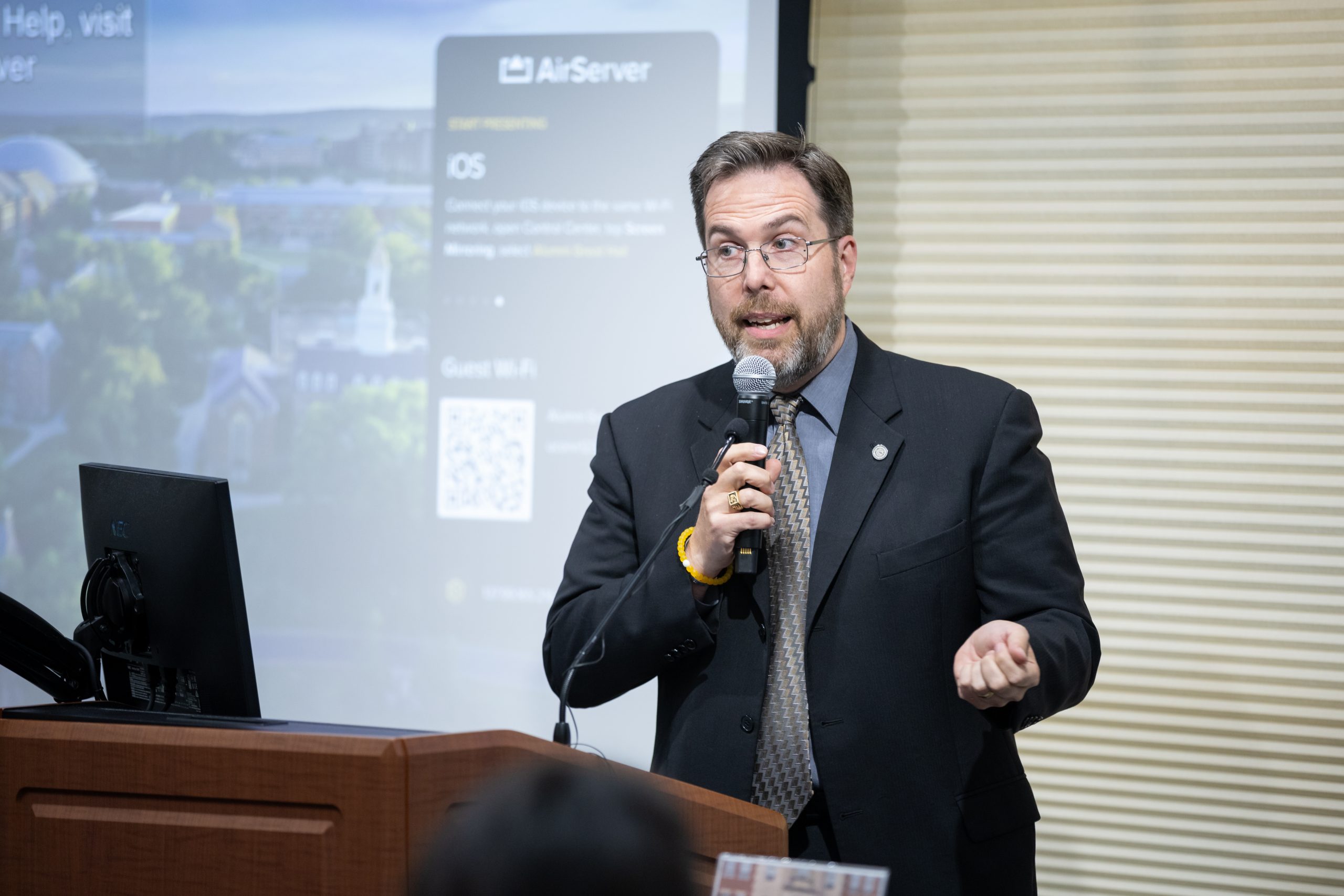The struggle for democracy in Egypt is far from over, and decisions by the U.S. could shape the revolution’s outcome, according to a panel of experts on Egypt and the Arab world.
The panelists, from UConn and Yale, addressed an audience of more than 150 students, faculty, staff, and members of the public in the Student Union on Thursday. To view video coverage of the event, click here.
“This roundtable is at the same time part of a conscientious effort here at UConn to practice responsible global citizenship ourselves, and to inspire global thinking and global responsibility among students, faculty, staff, and administrators,” said Katharina von Hammerstein, professor of German and director of global citizenship curriculum development, in her opening remarks.
The panel consisted of Adria Lawrence, assistant professor of political science at Yale University; Reda Ammar, professor and head of UConn’s computer science and engineering department; and Abdelkader Cheref, post-doctoral researcher in the modern and classical languages department in UConn’s College of Liberal Arts and Sciences.
Jeremy Pressman, the Alan R. Bennett Honors Professor of Political Science in CLAS, served as moderator.
Although the panel members agreed that recent events in Egypt have been inspiring not only to other Arab countries but to the entire world, they said the revolution may not necessarily bring a democratic state to the traditionally monarchistic country.
“We’re going to need a much longer attention span to see how this all unfolds,” said Lawrence. “True revolution is an exceedingly rare phenomenon.”
Democracy has an inherent amount of uncertainty associated with it, especially in poor countries like Egypt, the panelists said. In addition, said Lawrence, militaries are traditionally bad partners in creating democracies. This could complicate efforts in Egypt, where the military has currently taken over rule.
“How do we know that this will become a democracy?” asked Cheref, a native of Algeria. “They have weak democratic values and economic poverty.”
The experts also asserted that the United States has played a pivotal role in Egypt’s uprising so far, and could continue to do so. The U.S.’s stance on the protests during their development was unclear, with American public officials giving different opinions on the situation.
“In the beginning, the U.S. flip-flopped in its position,” said Ammar, who comes from Egypt. This indecisiveness may have been interpreted by the protestors as support for their cause, and in turn boosted their energy.
Despite their agreement that U.S. decisions could affect the country’s fate, the panelists disagreed about the role this country should play in building a new government.
Cheref believes that the U.S and other wealthy countries supporting democracy have now been given the opportunity in Egypt to, so to speak, put their money where their mouth is.
“We need the people who have been telling us for years we need to democratize to now help us in a real way,” he said. If not, that could mean that the developed world’s intentions are not so selfless, he suggested: “Democracy on the lips – but pure economic interest in the heart.”
While Lawrence agreed that the U.S.’s role will be important, she expressed her desire for the U.S. to take less of a leadership role in the Middle East. The U.S. is not a welcome guest in the region, she says, and the best way to win back trust is to allow countries to lead themselves.
No matter how the U.S. aids this situation, said Lawrence, once any small thing goes awry, the U.S. will be blamed, further tarnishing its reputation in the area. And that’s a risk she doesn’t think the U.S. should take.
“There’s only so much we can reasonably expect the U.S. to do,” she said. “There are limits to what large amounts of aid can buy you. Withdrawing U.S. money might not matter as much as people think it does.”
However the U.S. proceeds, the panel agreed that the road would be a long one for Egyptian citizens.
“The events in the Middle East are continuing to unfold,” said Pressman, “and we’re right in the midst of it.”


